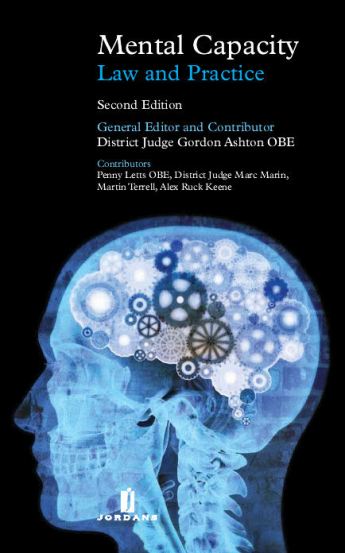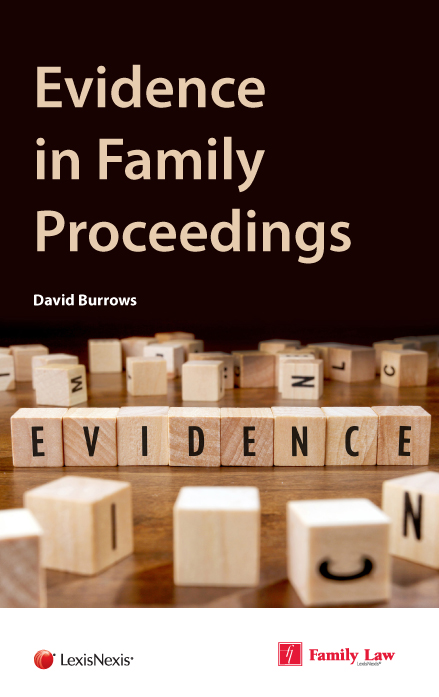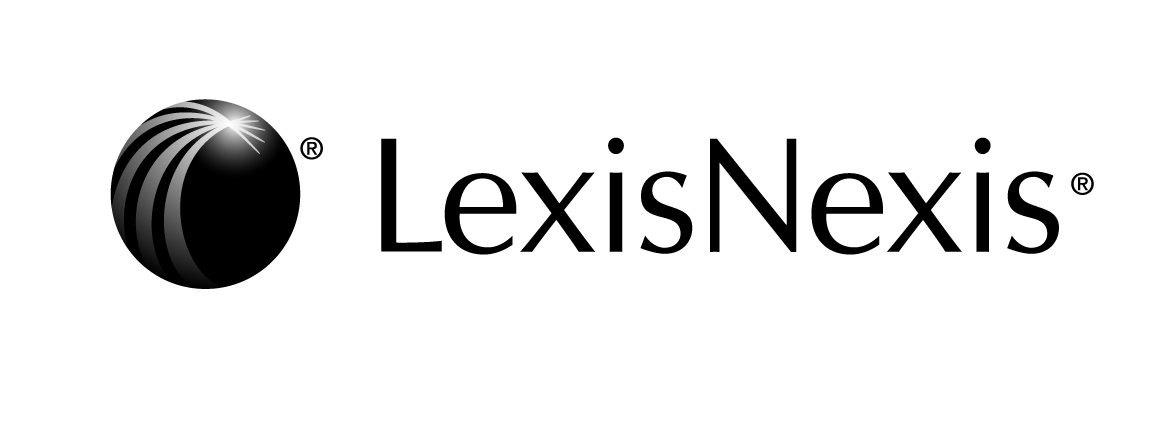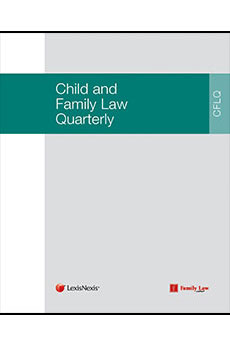Our articles are written by experts in their field and include barristers, solicitors, judges, mediators, academics and professionals from a range of related disciplines. Family Law provides a platform for debate for all the important topics, from divorce
and care proceedings to transparency and access to justice. If you would like to contribute please email
editor@familylaw.co.uk.
Family seeks court’s approval for administration of treatment
© Copyright LexisNexis 2024. All rights reserved.
Granting authority to administer novel medical treatments (University College London Hospitals NHS Foundation Trust v KG)
Private Client analysis: Gethin Thomas, barrister at 39 Essex Chambers, considers the case of University College London Hospitals NHS Foundation Trust v KG. Cohen J dealt with an application to grant authority to administer a pioneering treatment for a neurodegenerative brain disease.
University College London Hospitals NHS Foundation Trust v KG [2018] EWCOP 29
What was the background to the case?
The University College London Hospitals NHS Foundation Trust sought the court’s authority to administer a treatment known as PRN100 to a patient KG.
KG suffers sporadic Creutzfeldt-Jakob Disease (CJD), a neurodegenerative brain disease, which is invariably fatal, for which there is no known cure. Following diagnosis, the average lifespan is six weeks. PRN100, as Cohen J summarised, ‘has never been tested on or administered to any person anywhere. It is thus a completely novel treatment’ (para [2]). KG, the Official Solicitor on his behalf, and his family sought the court’s approval for the administration of the treatment.
In relation to KG’s capacity, the evidence was ‘all one way’. KG did not have the capacity to make an informed decision in relation to the treatment. He could express his view, but he was not able to retain the details of the risks and benefits of the treatment in order to make a decision for himself with capacity (paras [9] and [16]). The court therefore had to determine whether administering PRN100 to KG was in his best interests.
The factors in favour of treatment were summarised as follows (at para [15]):
that he wishes to have the treatment
that his wife and family wish him to have the treatment
that his quality of life, though diminishing, is still one that is clearly worth preserving
that there is some evidence from the animal studies that PRN100 could have a positive effect on the progression of sporadic CJD in humans
there is a sufficient possibility of unquantifiable benefit to justify the risks involved when, without treatment, KG will certainly deteriorate further and die within a short period (Simms v Simms; A v A (a child) [2002] EWHC 2734 (Fam), per Butler-Sloss P (as she then was) at para [57])
that there is a clear and thorough plan for protective monitoring and oversight
The factors against treatment were described as follows (at para [14]):
there is no evidence as to whether it is safe or effective in humans because there have been no clinical trials
there may be negative side effects or adverse reactions which may be serious or even life-threatening
it is possible that KG’s death will be accelerated or that he will be maintained in a poor state for a longer period than otherwise would have been the case
it is impossible to quantify the chances of a significant or material benefit to KG—they may be small or even non-existent
Article continues below...
Child and Family Law Quarterly
"The final professional word for the practitioner...
£80
Family Law Awards 2023
Winners announced!
What did the court decide?
Cohen J described the court’s approach as to applying the best interest test as involving the consideration of three factors:
the nature of the treatment that is proposed, what is involved and what its prospects of success are
what are the views of the patient, what does he want and what do his nearest and dearest want
the fact that this is a novel and experimental treatment
Applying those three factors in turn, Cohen J held that the treatment was in KG’s best interests.
First, Cohen J considered that the actual treatment in itself is not especially invasive. The primary method of administering the treatment is titration through the vein. However, in the event that the medication does not appear to be reaching the brain cells, then direct administration into the brain is required. Cohen J observed that it was impossible to know whether or not any treatment directly into the brain will be required prior to the administration of PRN100, and stated that testing will need to be done continuously. Cohen J added that:
‘It is, of course, essential to keep the effect of the treatment under very close review so that it can be adjusted or stopped if required.’ (at para [18])
Secondly, Cohen J observed that it is very clear that KG wants the treatment, and that his wife and family have all confirmed that this is his as well as their genuine wish. Referring to Simms v NHS Trust at para [25], Cohen J emphasised that ‘the wishes of the patient and his family are an important factor.’
Thirdly, in taking account of the fact that PRN is a novel treatment, Cohen J concluded that he is ‘satisfied that the highest standards of monitoring will be maintained’ (para [19]). Cohen J also observed that a detailed treatment plan had been prepared, and took ‘judicial notice that the unit at the hospital is a recognised world leader in the process which is to be undertaken.’ (para [20])
Cohen J rejected the Official Solicitor’s submission that he ought to apply the Bolam test (Bolam v Friern Hospital Management Committee [1957] 2 All ER 118), such that he was satisfied that the doctor ‘must act at all times in accordance with a responsible and competent body of relevant professional opinion.’ Cohen J did not consider that it was helpful to overlay the Mental Capacity Act 2005 with any additional test. (paras [32] to [33])
What are the practical implications of this case?
It would be wrong to think that, following the Charlie Gard case (Yates and Anor v Great Ormond Street for Children [2017] EWHC 1909 (Fam), [2018] 1 All ER 623), the courts are reluctant to sanction novel treatments which may not work. Rather, what is key to each decision is the individual’s quality of life. Cohen J observed that although KG was no longer able to be anything like the active man that he was before, he still has a quality of life:
‘[E]very day he spends with his family is special to him. He wants that to continue for as long as possible.’ (para [24])
Referring to the Supreme Court’s recent decision in An NHS Trust and others v Y (by his litigation friend, the Official Solicitor) and another [2018] UKSC 46, [2018] All ER (D) 167 (Jul), the applicant had indicated that it did not propose to bring further application before the court in the event that it proposes to treat future patients with PRN100 and the patient and his/her family are in agreement. However, Cohen J ‘respectfully suggested’ that it was ‘premature to arrive at such a conclusion until the results of this treatment are known. It may be that the benefit or risk analysis changes.’ In relation to PRN100 at least, it is therefore likely that further applications will need to be made in light of the outcomes of KG’s treatment.
Early engagement with the Official Solicitor in relation to PRN100 had been beneficial, and was ‘applauded’ by Cohen J. The trust had anticipated that this sort of case would arise within the reasonably foreseeable future, and had been in communication, and met, with the Official Solicitor. The Official Solicitor has had time to consider all the relevant facts, and ‘it permitted the thought processes about the relevant matters to develop without the pressure of a case that was coming imminently before the courts.’ As such, where possible, early engagement with the Official Solicitor in relation to novel treatments is to be encouraged.
Cohen J also endorsed a common-sense approach to press reporting, given the public interest in the novel treatment. The trust was permitted to give such information from time to time as is requested and approved by the family. It was therefore the patient and his family who were entitled to make that decision, and Cohen J emphasised that ‘their views are to be respected on it’.
Interviewed by Max Aitchison.
The views expressed by our Legal Analysis interviewees are not necessarily those of the proprietor.












